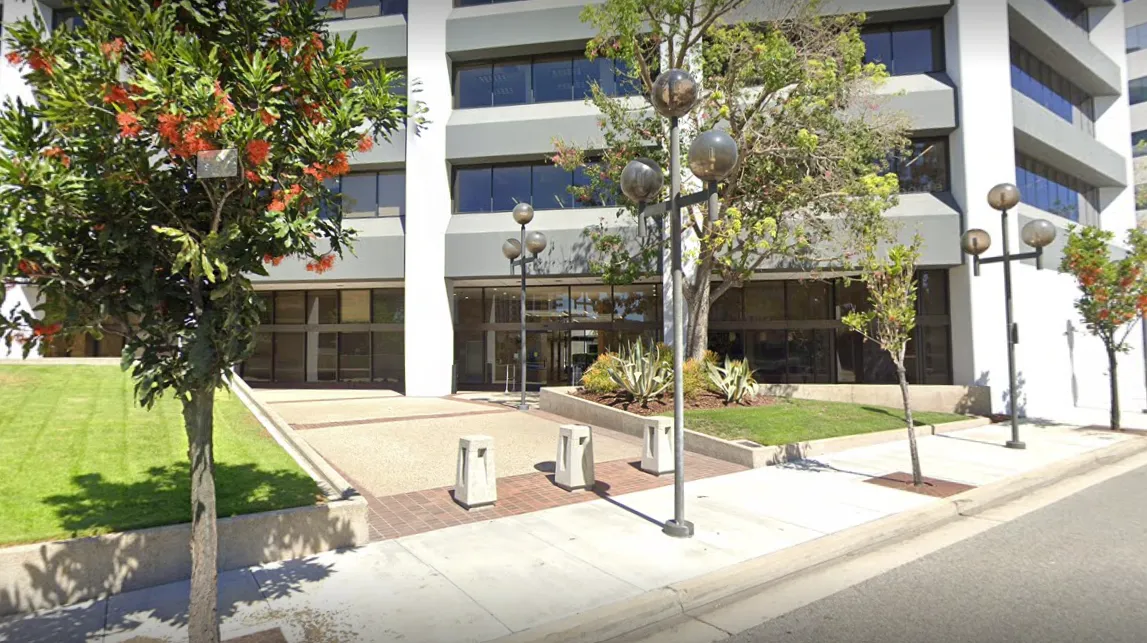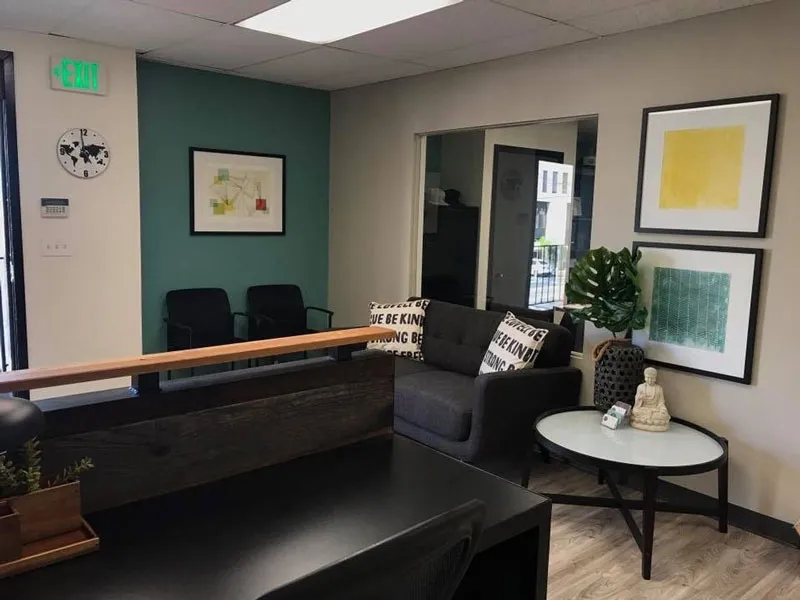OCD treatment provides targeted therapy to manage compulsions and intrusive thoughts. Exposure and Response Prevention (ERP) therapy helps individuals confront fears, while cognitive-behavioral therapy reduces anxiety and obsessive patterns. Combined with medication when necessary, programs support improved daily functioning and emotional well-being.
Ads
More Info
Advertisement Disclosure
Our website is funded by advertisers who pay for prominently labeled placements.
Read More69 Rehab Centers were found
Filters
Locations
- Los Angeles(+98)
- Culver City(+14)
- Westlake Village(+13)
- Woodland Hills(+11)
- Beverly Hills(+10)
- Santa Monica(+9)
- Sherman Oaks(+7)
- West Hollywood(+6)
- Malibu(+5)
- Chatsworth(+5)
- Pasadena(+5)
- Encino(+5)
- Redondo Beach(+4)
- Lancaster(+4)
- Reseda(+4)
- Studio City(+4)
- Northridge(+3)
- San Mateo(+3)
- Lynwood(+3)
- Vernon(+3)
- Van Nuys(+3)
- Tarzana(+3)
- North Hollywood(+3)
- Glendale(+3)
- Gardena(+3)
- Riverside(+3)
- Granada Hills(+2)
- Shadow Hills(+2)
- Venice(+2)
- Orange County(+2)
- Pomona(+2)
- West Hills(+2)
- Valley Village(+2)
- Burbank(+2)
- Brentwood(+2)
- Long Beach(+2)
- Sun Valley(+1)
- Torrance(+1)
- San Jacinto(+1)
- San Pedro(+1)
- Upland(+1)
- Whittier(+1)
- Toluca Lake(+1)
- Thousand Oaks(+1)
- Simi Valley(+1)
- Mission Viejo(+1)
- Acton(+1)
- Beaumont(+1)
- Wilmington(+1)
- Panorama City(+1)
- Anaheim(+1)
- Laguna Hills(+1)
- Inglewood(+1)
- Alhambra(+1)
- Rosemead(+1)
- Maywood(+1)
- Manhattan Beach(+1)
- Monterey Park(+1)
- Claremont(+1)
- Covina(+1)
- La Puente(+1)
- Pico Rivera(+1)
- San Fernando(+1)
- Azusa(+1)
- Santa Fe Springs(+1)
- Glendora(+1)
- Agoura Hills(+1)
- El Segundo(+1)
- Duarte(+0)
- Sunland(+0)
- Downey(+0)
- Cudahy(+0)
- El Monte(+0)
- Compton(+0)
- Hermosa Beach(+0)
- Cerritos(+0)
- Calabasas(+0)
- Bellflower(+0)
- Bell Gardens(+0)
- Avalon(+0)
- Arcadia(+0)
- Altadena(+0)
- Paramount(+0)
- South El Monte(+0)
- Walnut(+0)
- West Covina(+0)
- Santa Clarita(+0)
- San Gabriel(+0)
- San Dimas(+0)
- Rolling Hills(+0)
- Orange(+0)
- Hawaiian Gardens(+0)
- Palmdale(+0)
- Norwalk(+0)
- Montebello(+0)
- Lakewood(+0)
- South Pasadena(+0)
- Carson(+0)
- Hawthorne(+0)
Conditions
- Drug(+278)
- Alcohol(+219)
- Mental Health(+195)
- Opioid(+193)
- Cocaine(+184)
- Trauma(+180)
- Methamphetamine(+177)
- Benzodiazepines(+174)
- Heroin(+173)
- Prescription Drugs(+159)
- Depression(+152)
- Anxiety(+149)
- Xanax(+145)
- Synthetic Drugs(+138)
- PTSD(+133)
- Adderall(+131)
- Marijuana(+112)
- Bipolar(+109)
- Ecstasy(+104)
- MDMA(+99)
- Behavioral Health(+93)
- LSD(+93)
- Psychedelics(+91)
- Fentanyl(+71)
- Stress(+71)
- OCD(+69)
- Personality Disorders(+63)
- ADHD(+61)
- Gambling(+38)
- Eating Disorders(+35)
- Anorexia(+34)
- Binge Eating Disorder(+34)
- Bulimia(+33)
- Schizophrenia(+32)
- Gaming(+28)
- Internet Addiction(+27)
- Sex Addiction(+25)
- Burnout(+23)
- Pornography(+22)
- Shopping(+10)
- Narcissism(+8)
Insurances
- BlueCross BlueShield(+129)
- Aetna(+126)
- Anthem(+105)
- Cigna(+105)
- United Healthcare(+66)
- Humana(+63)
- Optum(+53)
- Medicaid(+53)
- MHN(+51)
- Magellan Health(+47)
- Kaiser Permanente(+39)
- Medicare(+31)
- GEHA(+31)
- ComPsych(+29)
- Highmark(+25)
- AmeriHealth(+13)
- Tufts Health(+11)
- Oscar(+9)
- CareFirst(+9)
- Molina Healthcare(+8)
- Intermountain Healthcare(+6)
- Beacon Health Options(+2)
- UMR(+2)
- NYSHIP(+2)
- ILWU(+2)
- Geisinger(+2)
- Empire Life(+2)
- Empire BCBS(+2)
- Bright Health(+2)
- GuideWell(+1)
Therapies

Call for rates - 7-30 days

$20,000 - 30 days

$1,750-$3,500

$1,50

N/A

$12,000 - 60-120 days
OCD Treatment in Los Angeles
Obsessive-Compulsive Disorder (OCD) is a mental health condition characterized by persistent, intrusive thoughts (obsessions) and repetitive behaviors or mental rituals (compulsions) aimed at reducing anxiety. While many people experience occasional worries or habits, OCD goes beyond normal concerns, interfering with daily life, relationships, and overall well-being.
Individuals with OCD often feel trapped in a cycle where obsessive thoughts create distress, leading to compulsive behaviors that provide temporary relief. However, the cycle continues, reinforcing the need for rituals and making it difficult to function without professional intervention.
Los Angeles offers a wide range of OCD treatment options, from therapy and medication to specialized intensive programs, helping individuals regain control and break free from compulsive behaviors.
Understanding OCD and Its Different Forms
OCD manifests in various ways, with symptoms differing from person to person. Some of the most common types of OCD include:
- Contamination OCD: Fear of germs, dirt, or illness, leading to excessive handwashing, cleaning, or avoiding certain places.
- Checking OCD: Repeatedly checking locks, appliances, or safety measures due to fear of harm or making a mistake.
- Intrusive Thought OCD: Unwanted, distressing thoughts related to harm, sexuality, religion, or morality, often leading to mental rituals to "undo" these thoughts.
- Symmetry and Order OCD: A need for things to be arranged in a specific way to prevent discomfort or perceived bad outcomes.
- Hoarding OCD: Difficulty discarding items due to fear of losing something important or making the "wrong" decision.
OCD can be exhausting and time-consuming, causing significant distress and making it difficult to focus on work, relationships, and personal goals.
When to Seek OCD Treatment
Many individuals with OCD attempt to manage their symptoms on their own, but without treatment, the cycle of obsessions and compulsions often worsens. Seeking professional help is recommended when:
- Obsessions cause excessive anxiety, fear, or emotional distress.
- Compulsions take up significant time, interfering with daily responsibilities.
- Attempts to stop rituals result in extreme discomfort or panic.
- Relationships, work, or personal well-being are suffering due to OCD symptoms.
- Avoidance behaviors prevent engaging in normal activities.
Early intervention can prevent symptoms from escalating and improve overall quality of life.
Effective Treatment Approaches for OCD
OCD is a treatable condition, and various therapeutic approaches help individuals manage symptoms and reduce compulsive behaviors.
Exposure and Response Prevention (ERP) is the most effective therapy for OCD. ERP involves gradually exposing individuals to their fears while preventing compulsive responses, allowing them to learn that anxiety naturally decreases over time. This approach helps break the cycle of obsessions and compulsions.
Cognitive Behavioral Therapy (CBT) helps individuals recognize distorted thought patterns and replace them with healthier ways of thinking. This therapy teaches coping skills to manage intrusive thoughts without resorting to rituals.
Medication is often used in combination with therapy to manage severe symptoms. Selective serotonin reuptake inhibitors (SSRIs), such as fluoxetine or sertraline, are commonly prescribed to help regulate anxiety and obsessive thoughts.
Mindfulness and Acceptance Therapy focus on helping individuals tolerate discomfort and reduce the need to control their thoughts. Learning to observe intrusive thoughts without reacting to them can significantly decrease distress.
Intensive Outpatient Programs (IOPs) and Residential Treatment provide structured support for individuals with severe OCD who struggle with daily functioning. These programs offer intensive therapy, coaching, and exposure exercises to accelerate recovery.
Managing OCD in Daily Life
While therapy provides the foundation for recovery, individuals with OCD must also develop long-term coping strategies. Some helpful techniques include:
- Practicing mindfulness to observe thoughts without engaging with them.
- Challenging obsessive thoughts by asking whether they are based on facts or fear.
- Reducing avoidance behaviors and facing fears gradually.
- Using relaxation techniques such as deep breathing or progressive muscle relaxation.
- Limiting compulsive reassurance-seeking and learning to tolerate uncertainty.
Developing a supportive environment is also crucial. Educating family and friends about OCD can help reduce misunderstandings and create a more accepting space for recovery.
The Road to Long-Term Recovery
OCD treatment is an ongoing process, and while symptoms may not disappear completely, they can be significantly reduced to allow for a fulfilling life. Many individuals experience major improvements with consistent therapy and the right coping techniques.
Continued therapy, periodic check-ins with mental health professionals, and participation in support groups help maintain progress and prevent relapse. Over time, individuals with OCD learn to manage uncertainty, reduce compulsions, and regain control over their lives.
Finding OCD Treatment in Los Angeles
Los Angeles has numerous specialized OCD treatment centers, therapists trained in ERP, and intensive recovery programs. Whether seeking outpatient therapy, medication management, or residential care, individuals can find treatment options tailored to their specific needs.
Speaking with an OCD specialist is the first step toward creating a personalized treatment plan that promotes long-term recovery.
Frequently Asked Questions
Can OCD go away on its own?
What is the fastest way to stop OCD compulsions?
Do I need medication for OCD, or is therapy enough?
How do I know if my OCD is severe enough for treatment?
Ads
More Info
Advertisement Disclosure
Our website is funded by advertisers who pay for prominently labeled placements.
Read More







































